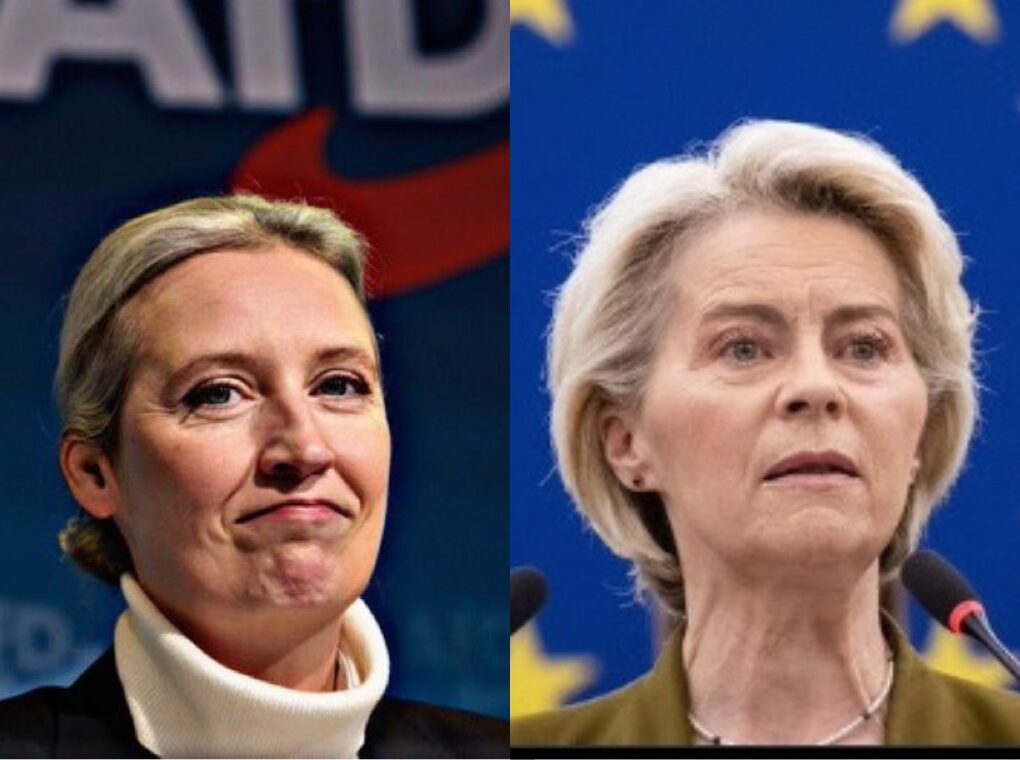In one of the most forceful political interventions of the year, Alice Weidel, co-chair of Germany’s Alternative for Germany (AfD), has launched a blistering attack on the European Union’s proposed “Chat Control” regulation, calling it “an absolutely totalitarian project” and “the de facto abolition of digital privacy.” Her statement has struck a powerful chord across Europe, resonating with citizens wary of expanding state surveillance under the guise of child protection.
Weidel’s remarks come just days before the European Council is set to vote on the Regulation to Prevent and Combat Child Sexual Abuse (CSAR) — a law that could change the nature of private digital communication across the EU. For Weidel and the AfD, this proposal is not about safety but about control, symbolizing a deeper democratic decay in Brussels.
A Digital Surveillance State in the Making
At its core, the Chat Control regulation seeks to combat child sexual abuse material (CSAM) by forcing communication service providers — including WhatsApp, Signal, and iMessage — to install scanning technologies that detect illegal content. The controversial element is the use of “client-side scanning,” which would analyze messages on users’ devices before encryption.
Supporters of the regulation, including the European Commission and several child protection NGOs, argue that this system is necessary in an age where CSAM has surged dramatically. According to Europol, over 1.5 million cases of abuse material were reported in 2024 alone. The proposed law would create an EU-wide monitoring center to coordinate reports and response actions.
However, critics warn that this approach turns private communication into a government-monitored space. Encryption — the cornerstone of digital privacy — would effectively be undermined, leaving users vulnerable to hackers and surveillance. Even tech companies like Signal and Apple have sounded alarms, with Signal threatening to withdraw its services from the EU entirely if the bill passes.
Weidel’s Warning: “The Stasi Could Only Dream of This”
In a recent video address, Alice Weidel drew a chilling parallel between the EU’s proposal and the surveillance practices of East Germany’s notorious Stasi secret police. “The Stasi could only dream of such power,” she said, warning that the EU was turning into a digital panopticon — one where every citizen is treated as a suspect.
Weidel accused the European Commission, led by Ursula von der Leyen, of constructing what she called a “digital dictatorship” — an unelected bureaucracy that operates beyond public accountability. “We want a strong Europe,” she declared, “but not an EU dictatorship run by people no one voted for.”
The Political Context: Sovereignty vs. Centralization
The proposed regulation has also reignited long-standing tensions between EU member states and Brussels. The Danish presidency of the EU Council has fast-tracked the bill, aiming for approval by mid-October 2025. Only a handful of nations — including Austria, the Czech Republic, Finland, and Poland — have formally opposed it.
The European Data Protection Supervisor (EDPS) has criticized the draft for violating Articles 7 and 8 of the EU Charter of Fundamental Rights, which guarantee privacy and data protection. Civil liberties organizations, such as the German Society for Civil Rights (GFF), have echoed these concerns, warning of unprecedented government overreach.
Weidel’s position places the AfD in alignment with a diverse coalition of privacy defenders spanning the political spectrum — from libertarians to left-wing digital rights groups. Yet, her framing of the issue is distinctly populist: a battle between ordinary Europeans and an out-of-touch elite ruling from Brussels.
Targeting Ursula von der Leyen
Weidel has repeatedly singled out Ursula von der Leyen, the European Commission President, as the embodiment of Brussels’ overreach. Von der Leyen’s reappointment in 2024 was, according to Weidel, “a bankruptcy declaration for European democracy.”
From secretive vaccine procurement deals during the COVID-19 pandemic to green industrial policies that critics say have fueled deindustrialization, Weidel paints von der Leyen as a symbol of elitist governance detached from citizens’ interests. “Zerrüttete Finanzen, grüne Planwirtschaft und Deindustrialisierung,” Weidel thundered in a recent Bundestag speech — accusing the EU leadership of ruining Europe’s economy and eroding its sovereignty.
AfD’s Rise and Weidel’s Influence
Under Weidel’s leadership, the AfD has grown from a fringe Eurosceptic party into Germany’s second-largest political force, polling between 21% and 25%. Her polished style and sharp critiques have broadened the party’s appeal, particularly among middle-class and younger voters disillusioned with mainstream parties.
Weidel’s broader message is clear: the AfD doesn’t seek to destroy Europe but to reclaim it — transforming the EU from a centralized superstate into a confederation of sovereign nations. Her call for a “Europe of fatherlands” echoes historical appeals for autonomy and balance, where cooperation does not come at the cost of freedom.
The Larger Debate
The controversy surrounding “Chat Control” has reignited Europe’s fundamental question — how much liberty are citizens willing to trade for security? Polls in Germany show that nearly 60% of respondents oppose any weakening of encryption, highlighting public discomfort with digital surveillance.
As the EU prepares to vote, Weidel’s warnings are resonating far beyond the AfD’s traditional base. For many Europeans, the fear is not only about privacy but about who controls the future — elected governments or unelected technocrats.
For Alice Weidel, the answer is simple: “Privacy is not a privilege — it’s a right. And under this EU regime, that right is dying.”
Whether her message will reshape the debate or deepen Europe’s political divides remains to be seen. But one thing is clear: the battle over Chat Control has become more than a policy dispute — it is a defining struggle over Europe’s democratic soul.
